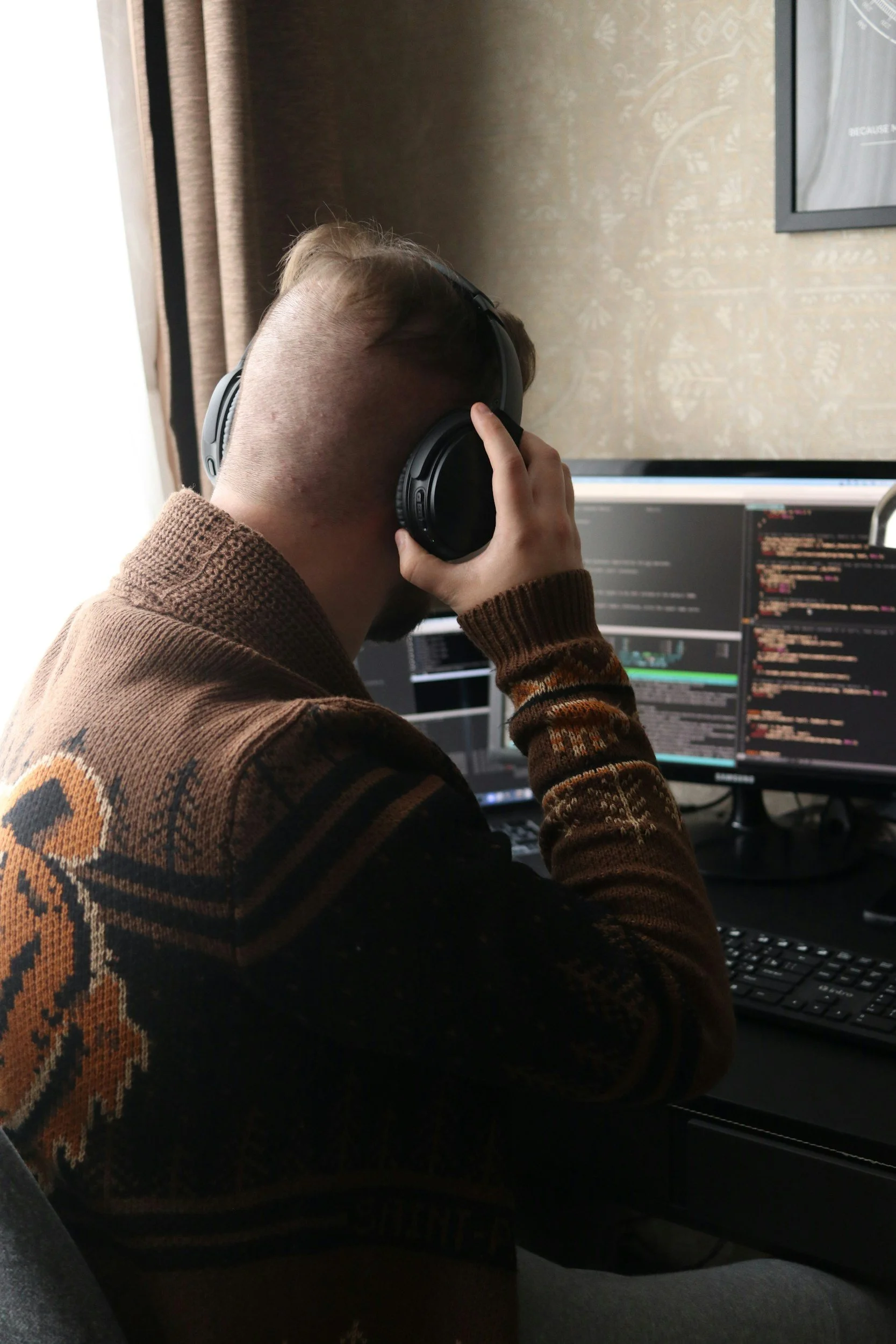Best Remote Jobs in Technology: How I Transitioned into a Junior DevOps Engineer
Remote Jobs > Remote Programming Careers > Best Remote Jobs in Technology: How I Transitioned into a Junior DevOps Engineer
As the demand for skilled professionals in technology continues to grow, remote work has reshaped the way we approach our careers, offering unprecedented freedom and flexibility. Nowhere is this shift more evident than in the field of DevOps, where engineers are using automation and cloud technologies to revolutionize software development—all from the comfort of their homes or while traveling the world. In this article, we’ll share a personal journey from a fresh university graduate who transitioned into a thriving junior DevOps engineer, all while navigating the complexities of remote work. Along the way, she provides insights into the challenges, opportunities, and lessons learned in balancing a high-tech career with the flexibility that remote jobs offer.
The Luxury of Remote Work for Junior DevOps Engineers
By Jyra Mae Benablo, DevOps Engineer
There’s a saying often repeated by employees and HR professionals on LinkedIn: “Working from home is a luxury.” Initially, I assumed remote work had become the norm over the past decade, particularly after the pandemic. What started as a source of mental distress has since turned into a luxury, thanks to the productivity gains and convenience remote work offers. As a software developer working an 8-to-5 day shift—an occupation that requires significant mental effort—and someone who leans toward introversion, I’ve truly benefited from the shift.
In this article, I’ll share my personal journey from a novice programmer to a junior DevOps engineer and explain how remote work has transformed my career and work-life balance. If you’re curious about how to enter this field or how to succeed in any of the remote jobs in technology, this guide is for you.
My Transition Into Programming: From University to DevOps Engineer
After graduating from university, I found myself lacking both the fundamental skills and experience necessary to thrive as a programmer. However, I was determined to pursue this career because software development is one of the most in-demand professions today.
Before remote work became a norm, programming already posed significant challenges. I would wake up early, commute to the office, and spend hours at the same desk. Client demands and tight deadlines were a daily occurrence, and I began to resent my workspace, despite attempts to make it more bearable.
When the pandemic hit in 2020, everything changed. Our homes became our new offices, and the transition was mentally taxing. Face-to-face interactions were replaced by video calls, and mentorship opportunities dwindled. I soon realized that without proper training or guidance, it would be difficult to become a competent developer, particularly in the evolving field of DevOps.
The Challenges I Faced as a New Programmer
Transitioning into the field wasn’t easy, especially during the pandemic when learning was largely self-driven.
Key Challenges:
Determining the Right Path: With so many programming languages and subfields, it was hard to figure out what to focus on. Should I learn Python, C, or explore web development?
Lack of Mentorship: The absence of a mentor meant I had to rely on trial and error, which slowed my progress.
Remote Communication: In-office meetings provide natural communication flow, but remote setups demand more deliberate and often exhausting efforts to stay connected.
I realized early on that programming is an experience-driven skill. The basics are only the start. A good mentor would have provided invaluable guidance, but working in isolation required a new level of perseverance.
Programs like the Remote Coding Bootcamp can help bridge this gap by offering structured learning paths and access to mentors. These programs provide the kind of support that can make all the difference when you’re learning complex skills in a remote environment.
How Remote Work Helped Me Adapt to DevOps
When I finally transitioned into DevOps engineering, I quickly saw how remote work could be an advantage rather than a hindrance. DevOps as a field requires automating and managing systems, which can be done remotely with the right tools.
Why Remote DevOps Works:
Automation with Tools: As a DevOps engineer, I now rely heavily on tools like Docker, Kubernetes, Jenkins, and Ansible to automate processes.
Flexible Cloud Infrastructure: With AWS, Azure, and Google Cloud, managing scalable systems remotely is seamless.
No Commute, More Focus: By working from home, I can focus more on learning new DevOps skills like setting up CI/CD pipelines and writing Bash scripts.
Remote work isn’t without challenges, but with the right setup and tools, it has significantly improved my workflow and productivity. If you’re just starting, a program like the Remote Coding Bootcamp can give you the hands-on experience needed to navigate these tools effectively.
Geoarbitrage FIRE Calculator
Calculate how geoarbitrage accelerates financial independence by working remotely in a lower-cost country.
Geoarbitrage Scenario
Results
Geoarbitrage Scenario:
Discretionary Income: $0 / year
Savings Rate: 0%
FIRE Number: $0
Projected Retirement Age: N/A
Work Location:
Retirement Location:
Tricks I Used to Make Learning Programming (and DevOps) Easier
Adapting to remote programming required more than technical skills. It required a mindset shift and practical adjustments.
My Key Tips:
Designate a Workspace: Create a specific space for work to maintain focus.
Stay Curious: Even after mastering the basics, continue exploring new areas of DevOps.
Join a Bootcamp: Enrolling in a comprehensive program, like the Remote Coding Bootcamp, helped me fill knowledge gaps and gain hands-on experience in areas such as Linux environments and scripting.
Focus on Security: Always protect your work data. I follow strict security guidelines—using VPNs, privacy screens, and avoiding public Wi-Fi to secure sensitive company information.
By following these steps, I grew more comfortable in my role as a junior DevOps engineer and became better equipped to handle remote work. Programs like the Remote Coding Bootcamp offer a structured way to gain these skills while working remotely, making the learning process smoother.
The Essential Skills and Tools for Junior DevOps Engineers
If you’re aiming to become a junior DevOps engineer, here’s what you need to know:
Key Skills:
Automation & Scripting: Master Python, Bash, or Ruby to automate tasks.
CI/CD Pipeline: Learn tools like Jenkins and GitLab CI/CD to streamline development and deployment.
Cloud Platforms: Gain experience with AWS, Azure, or Google Cloud.
Linux Mastery: Understanding Linux shells is critical for DevOps engineers.
Must-Know Tools:
Docker: For containerizing applications.
Kubernetes: For container orchestration.
Terraform: For infrastructure as code.
Ansible: For configuration management.
These skills will help you navigate both the technical and collaborative aspects of DevOps engineering. A bootcamp that specializes in remote learning, like the Remote Coding Bootcamp, can provide you with a guided path to mastering these tools and skills efficiently.
How Remote Work Has Improved My Life as a Junior DevOps Engineer
Remote work has changed the way I view my career and daily routine. The flexibility has allowed me to better balance my personal life with work.
Key Benefits:
Improved Work-Life Balance: I now have time to focus on both career growth and mental health.
Financial Savings: No more commuting costs or overpriced lunches.
More Learning Opportunities: Remote work gives me the time to explore new skills, like project management, while continuing to deepen my expertise in DevOps.
Remote programming and DevOps have not only improved my career but have also given me the freedom to grow at my own pace. If you’re looking for a way to fast-track your remote career in tech, structured programs like the Remote Coding Bootcamp offer a practical way to gain the skills and experience needed to make a successful transition.
Why Remote Jobs in Technology Are Perfect for Junior DevOps Engineers
The journey to becoming a junior DevOps engineer is challenging but rewarding, especially in the world of remote jobs in technology. Remote work allows for greater flexibility, improved work-life balance, and opportunities for continuous learning. Whether you’re just starting out or transitioning into DevOps, having the right mindset, skills, and tools is key to success.
If you’re ready to jump into this field, programs like the Remote Coding Bootcamp offer the training and mentorship you need to thrive. In my experience, the flexibility of remote work and the hands-on nature of DevOps has allowed me to grow both personally and professionally.
- Jyra Mae Benablo, DevOps Engineer
Ready to Embark on Your Own Journey?
Imagine the freedom of working as a DevOps engineer, automating systems from a cozy cabin in the mountains or managing cloud infrastructure while enjoying the sunset on a beach in Bali. Just like my journey from novice to junior DevOps engineer, you too can unlock the doors to a high-paying, flexible career that allows you to work from anywhere in the world. The first step? Getting the right training.
The Remote Coding Bootcamp is your gateway to a successful DevOps career. This comprehensive program is designed to teach you the skills and tools needed to thrive in the industry—whether it’s mastering CI/CD pipelines, learning Docker and Kubernetes, or gaining hands-on experience with AWS and cloud infrastructure.
With the Remote Coding Bootcamp, you’ll be guided every step of the way, from learning the basics to completing real-world projects. Ready to embrace the freedom of remote work and become a DevOps expert? The journey starts here.
Learn more about transitioning to an AI Data Scientist career at the Remote Coding Bootcamp today!
Bradley doing training online with other classmates to become a Certified Scrum Product Owner
Thank you VERY much for reading our article. We actually created this website to help people reach financial independence. Did you know that by having a remote job and traveling endlessly, or living in a country that has low costs of living, you can actually reach retirement quicker? Plus, retirement abroad is up to 75 percent cheaper as well! Learn more by exploring our website.
See our Thank You page to sign up for our free weekly newsletter - you’ll receive only 1 email per week letting you know about our latest travel articles, remote-work life, and amazingly affordable destinations!
Found this post useful? Buy us a coffee to help support this site’s running costs OR share this article with a friend.
































![Tech Elevator Demystified: Reviews, Legitimacy, and Winning Alternatives [2024]](https://images.squarespace-cdn.com/content/v1/5a028c7bbce1766d207a8a6f/1707008329038-96GH4TTYZATP6N3WDWXR/tech_elevator.png)
![Cracking the Code: Coding Dojo Reviews, Legitimacy Check, and Top Alternatives [2024]](https://images.squarespace-cdn.com/content/v1/5a028c7bbce1766d207a8a6f/1707007756149-VSJNN2PHHX2RWK6RSVQM/coding_dojo.png)


![App Academy Unveiled: Reviews, Legitimacy Check, and Top Alternatives [2024]](https://images.squarespace-cdn.com/content/v1/5a028c7bbce1766d207a8a6f/1707008090320-IUIIV4T416FP5ILRGK5W/app_academy.png)
![CareerFoundry Decoded: Reviews, Legitimacy, and the Best Alternatives [2024]](https://images.squarespace-cdn.com/content/v1/5a028c7bbce1766d207a8a6f/1707008030234-CZTE1805JUCU2M2GK7RO/careerfoundry.png)



